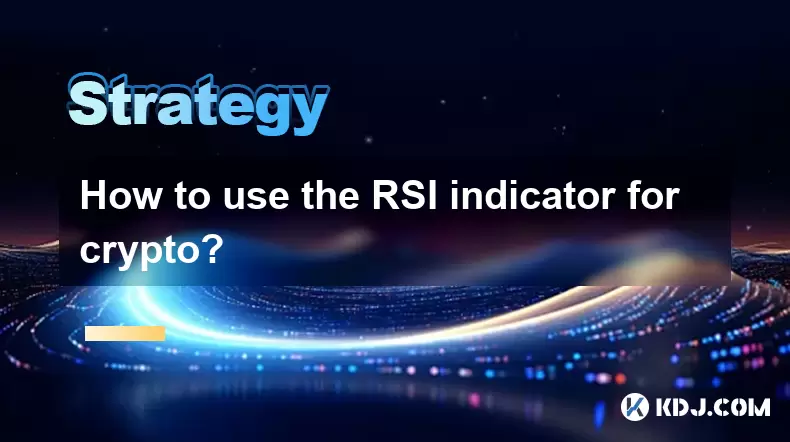-
 Bitcoin
Bitcoin $114400
1.32% -
 Ethereum
Ethereum $3499
2.20% -
 XRP
XRP $2.922
4.26% -
 Tether USDt
Tether USDt $0.0000
0.03% -
 BNB
BNB $752.6
1.53% -
 Solana
Solana $161.8
1.64% -
 USDC
USDC $0.9999
0.01% -
 TRON
TRON $0.3267
1.32% -
 Dogecoin
Dogecoin $0.1991
3.02% -
 Cardano
Cardano $0.7251
3.29% -
 Hyperliquid
Hyperliquid $38.32
3.36% -
 Stellar
Stellar $0.3972
7.58% -
 Sui
Sui $3.437
2.74% -
 Chainlink
Chainlink $16.29
3.65% -
 Bitcoin Cash
Bitcoin Cash $545.3
3.70% -
 Hedera
Hedera $0.2482
7.49% -
 Ethena USDe
Ethena USDe $1.001
0.03% -
 Avalanche
Avalanche $21.40
2.02% -
 Toncoin
Toncoin $3.579
1.56% -
 Litecoin
Litecoin $109.3
2.20% -
 UNUS SED LEO
UNUS SED LEO $8.951
-0.18% -
 Shiba Inu
Shiba Inu $0.00001220
2.75% -
 Polkadot
Polkadot $3.613
2.99% -
 Uniswap
Uniswap $9.173
3.78% -
 Monero
Monero $302.6
2.62% -
 Dai
Dai $0.0000
0.00% -
 Bitget Token
Bitget Token $4.320
1.52% -
 Pepe
Pepe $0.00001048
3.40% -
 Cronos
Cronos $0.1314
4.33% -
 Aave
Aave $259.4
3.54%
How to find arbitrage opportunities for SHIB? How to use the cross-exchange spread?
To find arbitrage opportunities for SHIB, monitor prices across exchanges, calculate the cross-exchange spread, and execute trades quickly to exploit price differences.
Apr 29, 2025 at 02:07 pm

How to Find Arbitrage Opportunities for SHIB? How to Use the Cross-Exchange Spread?
Arbitrage opportunities in the cryptocurrency market, particularly for SHIB (Shiba Inu), can be lucrative if identified and executed correctly. This article will guide you through the process of finding arbitrage opportunities for SHIB and how to use the cross-exchange spread to maximize your profits.
Understanding Arbitrage and SHIB
Arbitrage is the practice of taking advantage of price differences in the same asset across different markets. For SHIB, this means buying the token on one exchange where the price is lower and selling it on another where the price is higher. SHIB, being a popular meme coin, often experiences significant price volatility across various exchanges, making it a prime candidate for arbitrage.
To start, you need to understand the basic mechanics of SHIB trading and the concept of cross-exchange spread. The cross-exchange spread refers to the difference in the price of SHIB between two or more exchanges. This spread is what arbitrageurs aim to exploit.
Identifying Arbitrage Opportunities for SHIB
The first step in finding arbitrage opportunities for SHIB is to monitor the prices of SHIB across multiple exchanges. Here's how you can do it:
- Use Cryptocurrency Price Trackers: Websites like CoinGecko and CoinMarketCap provide real-time price data for SHIB across various exchanges. These platforms are essential for quickly identifying price discrepancies.
- Set Up Alerts: Many trading platforms and third-party apps allow you to set up price alerts. Configure these alerts to notify you when the price of SHIB on one exchange deviates significantly from another.
- Manual Monitoring: Regularly check the prices of SHIB on different exchanges. This can be time-consuming but effective, especially if you're looking for opportunities during peak trading hours.
Once you've identified a potential arbitrage opportunity, you need to calculate the cross-exchange spread. Here’s how to do it:
- Calculate the Spread: Subtract the lower price from the higher price to determine the spread. For example, if SHIB is trading at $0.000025 on Exchange A and $0.000030 on Exchange B, the spread is $0.000005.
- Consider Transaction Fees: Always account for transaction fees on both exchanges. These fees can significantly impact the profitability of your arbitrage trade.
- Evaluate the Profitability: After accounting for fees, determine if the spread is large enough to justify the trade. If the net profit (spread minus fees) is positive, the opportunity is worth considering.
Executing Arbitrage Trades for SHIB
Once you've identified a profitable arbitrage opportunity, the next step is to execute the trade. Here's a detailed guide on how to do it:
- Fund Your Accounts: Ensure you have sufficient funds in both exchanges where you plan to trade. You'll need to buy SHIB on the exchange with the lower price and sell it on the exchange with the higher price.
- Place the Buy Order: On the exchange where SHIB is cheaper, place a buy order for the amount you wish to arbitrage. Ensure you have enough funds to cover this purchase plus any associated fees.
- Transfer SHIB: After purchasing SHIB, you may need to transfer it to the exchange where it's more expensive. This step can be skipped if you have accounts on both exchanges that allow internal transfers.
- Place the Sell Order: On the exchange where SHIB is more expensive, place a sell order for the SHIB you've just acquired or transferred. Make sure to account for any fees associated with this sale.
- Monitor and Adjust: Keep an eye on the prices and be prepared to adjust your orders if the market moves against you. Speed is crucial in arbitrage trading, as price discrepancies can close quickly.
Using Cross-Exchange Spread Effectively
To use the cross-exchange spread effectively for SHIB arbitrage, consider the following strategies:
- Leverage Market Inefficiencies: Cryptocurrency markets are often less efficient than traditional financial markets, leading to more significant price discrepancies. Focus on times when market liquidity is lower, such as weekends or off-hours, to find larger spreads.
- Automate Your Trading: Consider using trading bots or automated scripts to execute your arbitrage trades more quickly and efficiently. These tools can monitor prices and execute trades faster than manual trading.
- Diversify Your Arbitrage Opportunities: Don't limit yourself to just SHIB. Look for arbitrage opportunities across other cryptocurrencies as well. Diversifying your trades can help mitigate risks and increase potential profits.
Risks and Considerations in SHIB Arbitrage
While arbitrage can be profitable, it comes with its own set of risks and considerations:
- Market Risk: Prices can move against you before you complete your arbitrage trade, resulting in a loss. Always have a plan to manage potential losses.
- Liquidity Risk: There may not be enough SHIB available on the exchange where you want to buy, or enough buyers on the exchange where you want to sell. Always check the order book depth before executing a trade.
- Regulatory Risk: Cryptocurrency regulations can vary by country and can change quickly. Ensure you're aware of the legal implications of arbitrage trading in your jurisdiction.
- Technical Risk: Exchanges can experience technical issues, such as downtime or delays in processing transactions. Have contingency plans in place for such scenarios.
Tools and Resources for SHIB Arbitrage
To enhance your arbitrage strategy for SHIB, consider using the following tools and resources:
- Arbitrage Calculators: Online calculators can help you quickly determine the profitability of an arbitrage opportunity by accounting for fees and other factors.
- Trading Bots: Bots like 3Commas or Cryptohopper can automate your arbitrage trades, reducing the risk of human error and increasing speed.
- API Access: Many exchanges offer API access, allowing you to integrate your trading strategies with custom scripts or bots.
- Community Forums: Engage with other arbitrage traders on platforms like Reddit or specialized cryptocurrency forums to share insights and learn about new opportunities.
Frequently Asked Questions
Q: Can I use arbitrage strategies for SHIB on decentralized exchanges (DEXs)?
A: Yes, you can use arbitrage strategies on DEXs for SHIB. However, the process might be more complex due to the nature of decentralized trading. You'll need to consider gas fees on blockchain networks like Ethereum, which can affect the profitability of your trades. Additionally, liquidity on DEXs can be lower, which might impact the size of your arbitrage opportunities.
Q: How quickly do I need to act on an arbitrage opportunity for SHIB?
A: Speed is crucial in arbitrage trading. Price discrepancies can close within seconds or minutes, especially in highly liquid markets. To maximize your chances of success, you should aim to execute your trades as quickly as possible, ideally within a few minutes of identifying the opportunity.
Q: Are there any legal restrictions on arbitrage trading with SHIB?
A: Legal restrictions on arbitrage trading can vary by country. In some jurisdictions, arbitrage is considered a legitimate trading strategy, while in others, it might be subject to specific regulations or even prohibited. Always research and comply with the laws and regulations in your area before engaging in arbitrage trading.
Q: Can I use margin trading to enhance my SHIB arbitrage strategy?
A: Yes, margin trading can potentially increase your returns in SHIB arbitrage. However, it also increases your risk, as losses can be amplified. If you choose to use margin trading, ensure you have a solid risk management strategy in place and understand the terms and conditions of the margin trading platform you're using.
Disclaimer:info@kdj.com
The information provided is not trading advice. kdj.com does not assume any responsibility for any investments made based on the information provided in this article. Cryptocurrencies are highly volatile and it is highly recommended that you invest with caution after thorough research!
If you believe that the content used on this website infringes your copyright, please contact us immediately (info@kdj.com) and we will delete it promptly.
- Cold Wallet vs. MetaMask: A Web3 Wallet Revolution?
- 2025-08-04 06:30:12
- Chainlink Price Prediction: Bearish Continuation or a Bullish Reversal?
- 2025-08-04 06:35:12
- Bitcoin Whale Alert: Navigating Liquidation Risks in a Volatile Market
- 2025-08-04 07:10:12
- BNB Price Under Pressure: Navigating the Bearish Trend and Market Sentiment
- 2025-08-04 07:15:12
- Bitcoin Price Wobbles: Options Analysis Points to Bullish Undercurrent Despite Dip
- 2025-08-04 04:30:12
- Ark Invest, Coinbase, and Bitcoin: Decoding the Crypto Investment Landscape in NYC
- 2025-08-04 04:30:12
Related knowledge

How to avoid common crypto investment mistakes?
Jul 13,2025 at 01:35am
Understanding the Risks of Crypto InvestmentInvesting in cryptocurrency can be highly rewarding, but it also comes with significant risks. One of the ...

What is a long-short crypto strategy?
Jul 15,2025 at 10:56am
Understanding the Basics of a Long-Short Crypto StrategyA long-short crypto strategy is an investment approach where traders simultaneously take long ...

What is a long-short crypto strategy?
Jul 11,2025 at 01:28pm
Understanding the Basics of Long-Short Crypto StrategyA long-short crypto strategy is an investment approach where traders take both long and short po...

How to use the RSI indicator for crypto?
Jul 12,2025 at 03:56pm
Understanding the RSI Indicator in Cryptocurrency TradingThe Relative Strength Index (RSI) is a momentum oscillator used to measure the speed and chan...

Is copy trading a good strategy for crypto beginners?
Jul 12,2025 at 08:28am
Understanding Copy Trading in the Cryptocurrency MarketCopy trading is a strategy where novice traders replicate the trades of experienced investors a...

How to build a crypto portfolio with $1000?
Jul 13,2025 at 08:14pm
Understanding the Basics of Cryptocurrency InvestmentBuilding a crypto portfolio with $1000 starts with understanding the fundamentals of cryptocurren...

How to avoid common crypto investment mistakes?
Jul 13,2025 at 01:35am
Understanding the Risks of Crypto InvestmentInvesting in cryptocurrency can be highly rewarding, but it also comes with significant risks. One of the ...

What is a long-short crypto strategy?
Jul 15,2025 at 10:56am
Understanding the Basics of a Long-Short Crypto StrategyA long-short crypto strategy is an investment approach where traders simultaneously take long ...

What is a long-short crypto strategy?
Jul 11,2025 at 01:28pm
Understanding the Basics of Long-Short Crypto StrategyA long-short crypto strategy is an investment approach where traders take both long and short po...

How to use the RSI indicator for crypto?
Jul 12,2025 at 03:56pm
Understanding the RSI Indicator in Cryptocurrency TradingThe Relative Strength Index (RSI) is a momentum oscillator used to measure the speed and chan...

Is copy trading a good strategy for crypto beginners?
Jul 12,2025 at 08:28am
Understanding Copy Trading in the Cryptocurrency MarketCopy trading is a strategy where novice traders replicate the trades of experienced investors a...

How to build a crypto portfolio with $1000?
Jul 13,2025 at 08:14pm
Understanding the Basics of Cryptocurrency InvestmentBuilding a crypto portfolio with $1000 starts with understanding the fundamentals of cryptocurren...
See all articles

























































































